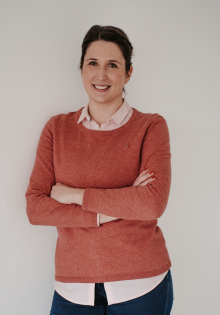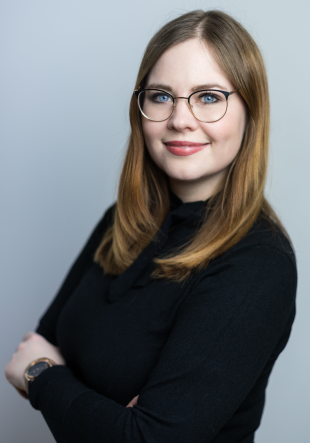KW in dialogue
An incitement to transdisciplinary dialogue
The event planned for the winter semester 2024/2025 is based on the conviction that inter- and transdisciplinary cooperation in the context of cultural studies research - and probably not only in this context - goes or should go far beyond the juxtaposition of different perspectives and observations.The event invites different perspectives to challenge each other in academic dialogue and thus promote their modification, change, deepening or expansion.
The structure of the event is designed to provoke challenging encounters in the aforementioned way, which, in addition to the concrete project discussions, also communicate in dialogue about the (self-)understanding as a cultural scientist. To this end, four thematic clusters were formed in order to engage in in-depth dialogue and discussion. The following faculty centres were recruited for the clusters: Centre for Comparative Theology (ZeKK), Transdisciplinary Research Centre for Popular Music Cultures and Creative Economies (C:POP), Centre for German-Language Contemporary Literature (ZdG) and Centre for Gender Studies (ZG).The respective sessions, which are organised by the named centres, usually consist of two tandems, each with a keynote lecture and a response lecture and a final discussion bringing all lectures together. "Tandem" here means the (preferably) cross-status group composition and participation of two people. The keynote lecture is dedicated to topics and/or uses methods that should extend as far as possible into the department of the person giving the response lecture. In short: the impulse lecture "poaches" in another subject area. The function of the response lecture is to provide feedback (preferably focussed on one aspect) that encourages people to cross the boundaries of the relevant subject area, but at the same time serves to make them aware of the culture of thinking that is cultivated in the respective foreign realm and how crossing it can become a fruitful expedition accompanied by local knowledge and critical support.
The sessions take place monthly (Wednesdays, 16:00-18:00, s.t.) in presence (Room: J3 220).
Events at a glance
| Date | Title | Faculty centres/persons involved |
| I. | 23.10.2024 | Who has the right to truth? Perspectives on Gotthold Ephraim Lessing's "Nathan the Wise" | Centre for Comparative Theology and Cultural Studies (ZeKK) |
| II. | 20.11.2024 | Stars and asterisks in pop music: old transgressions and new boundaries. Incitement to pop-cultural (further) discussions. | Transdisciplinary Research Centre for Popular Music Cultures and Creative Economies (C:POP)
|
| III. | 11.12.2024 | "Teaching liberated reading". Contemporary literature as a research perspective in German literature studies | Centre for Contemporary German Literature (ZdG) |
| IV. | 15.01.2025 | The localisation of gender studies & how gender comes into academia | Centre for Gender Studies (ZG) |
Events in detail
Who has the right to the truth?
Perspectives on Gotthold Ephraim Lessing's "Nathan the Wise"
- Yael Attia (MA)
- Dr. Domenik Ackermann
- Dr. Mohammed Abdelrahem
- Prof. Dr. Lothar van Laak
Lessing's comedy "Nathan the Wise" problematises the role of religion in social discourse. The famous Ring Parable, which attempts to find a solution to the question of "true" religion, is particularly relevant. Truth claims and the role of religions in society are still at the centre of interreligious discourse today.
While the Ring Parable certainly provides a rational answer to the question of truth, it must be problematised against the current pluralistic background. Is this concept of truth really the solution for the current social discourse and in dealing with religions?
Our article "Who has the right to truth? Perspectives on Gotthold Ephraim Lessing's "Nathan the Wise"" considers from Islamic, Jewish and Christian perspectives how the concept of truth has developed within religious traditions and poses the question of whether and to what extent a concept of truth is justifiable in an interreligious context today. In this context, three 20-minute presentations will be given, followed by a response:
- The impulse by Yael Attia deals with the reception of the Ring Parable in Jewish tradition and asks what the framework conditions for a contemporary interpretation of the Ring Parable must be today from a Jewish perspective in order to have social relevance.
- Dr Domenik Ackermann's impulse lecture problematises the use of the Christian concept of truth in dealing with other religions, especially in comparative theology.
- Dr Mohammed Abdelrahmen's impulse addresses Shahrour's concept of Islam as a generic term for belief in God in the Abrahamic religions, asking whether this concept can be understood as a modern "ring parable".
- Prof. Dr. Lothar van Laak responds to the lectures from a literary studies perspective.
Stars and asterisks in pop music: old transgressions and new boundaries.
Incitement to pop-cultural (further) discussions.
- Prof.'in Dr.'in Annegret Thiem
- Prof. Dr. Christoph Jacke
Karol G, Shakira, Jennifer Lopez and so many other female superstars of pop music cultures allow us to learn a lot about the societies we live in from their figures, (moving) images, sounds and diverse performances as well as from their media, political and economic contexts: When postmodernism became popmodernism, when strong female pop music stars empowered themselves, when cultural circles other than Anglo-American ones became fascinating for audiences, fans, potentially social and journalistic media and marketing, anything seemed possible, leaps over tradition and third spaces seemed almost obligatory.
But how do such powerful female figures move between cultural identities and identitarian cultures or even socio-political needs?
Even the colourful and often laboratory-like pop music cultures seem to have their limits. Or do they?
In our reciprocal impulses, we want to work through some central points of the analysis of Latin American superstars of pop music cultures in dialogue and in several short responses, in order to then open up the setting with the audience. In this way, the multi-perspective and transdisciplinary collaboration cultivated at the "C:POP - Transdisciplinary Centre for Popular Music Cultures and Creative Economies" will be demonstrated and practised against a common cultural studies background of different academic cultures.
"Lessons in liberated reading".
Contemporary literature as a research perspective in German literary studies
- Prof. Dr. Norbert Eke
- Dr. Johanna Tönsing
Contemporary literature research operates in a field of uncertain attribution processes. Its subject matter is also rather volatile, which makes it risky to attempt to base an academic career on work in the research field of 'contemporary literature'. The fact that two fields, namely literary criticism and literary studies, are closely linked in contemporary literary studies does not make things any easier. And what's more, despite all the paradigm shifts in cultural studies, contemporary literature research has not yet developed its own standardised methodology for dealing with so-called contemporary literature. Not even what the present of contemporary literature is can be considered certain.
Against this background, we propose an understanding of 'contemporary literature' as a system of signs - creating an observational distance in proximity - in which processes of negotiating social self-evident truths become visible. Literature, according to an idea that may guide contemporary literature research, reflects the logics of meaning-making within the societies in which it is created and, as a medium of reconstruction (of reality), also 'co-creates' the production of reality. As performative practices, literature (and theatre) thus have a special significance: as a mirror and storage medium of symbolic difference, and at the same time as a medium of 'time encapsulation' that makes cultural negotiation processes visible and creates an observational distance in proximity.
We want to enter into dialogue with each other about this kind of presence and the consequences of this for contemporary literary research.
The localisation of gender studies & how gender comes into science
- Prof. Dr. Antje Langer
- Oxana Eremin
The history of gendered thinking and gendered knowledge production is as old as the humanities and cultural studies themselves (cf. e.g. Doyé et al. 2002). In contrast, interdisciplinary gender studies as an academically institutionalised discipline is a comparatively young field of research and knowledge. In Germany, for example, gender studies was only gradually established as an academic subject area at universities in the 1980s and 1990s (cf. Brand/Sabisch 2019). The trans- and interdisciplinary approach of gender studies is rooted in women's studies, the beginnings of feminist theory and its practices of challenging and shifting (academic) knowledge cultures (cf. Hark 1998). "Characteristic of research on the category of gender is not only the question of the emergence and meaning of gender relations, but also the problematisation of one's own categories of knowledge." (Brand/Sabisch 2019: 1043).
In the seminar "Gender Studies - History and Development", students on the Master's degree programme in Gender Studies explore the genesis of gender studies as an interdisciplinary subject and ask about the opportunities and challenges associated with the interdisciplinarity of gender studies. Furthermore, the students deal with gender-theoretical and gender-analytical perspectives in their respective second subjects.
We would like to present, share and discuss our results and findings from the participatory seminar work in a joint lecture by students and teachers of Gender Studies at UPB.
Literature:
- Brand, Maximiliane & Sabisch, Katja (2019). Gender Studies. History, establishment and practical perspectives. In: Kortendiek, Beate et al. (eds.), Handbook of Interdisciplinary Gender Studies. Wiesbaden: Springer VS, pp. 1043-1051.
- Doyé, Sabine/ Heinz, Marion/ Kuster, Friederike (eds.) (2022). Philosophical gender theories. Leipzig: Reclam.
- Hark, Sabine (1998). Disciplinary crossings. (Im)possibilities of transdisciplinary gender studies. Potsdamer Studien zur Frauen- und Geschlechterforschung, 2, pp. 7-22.


